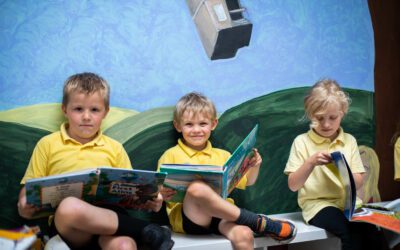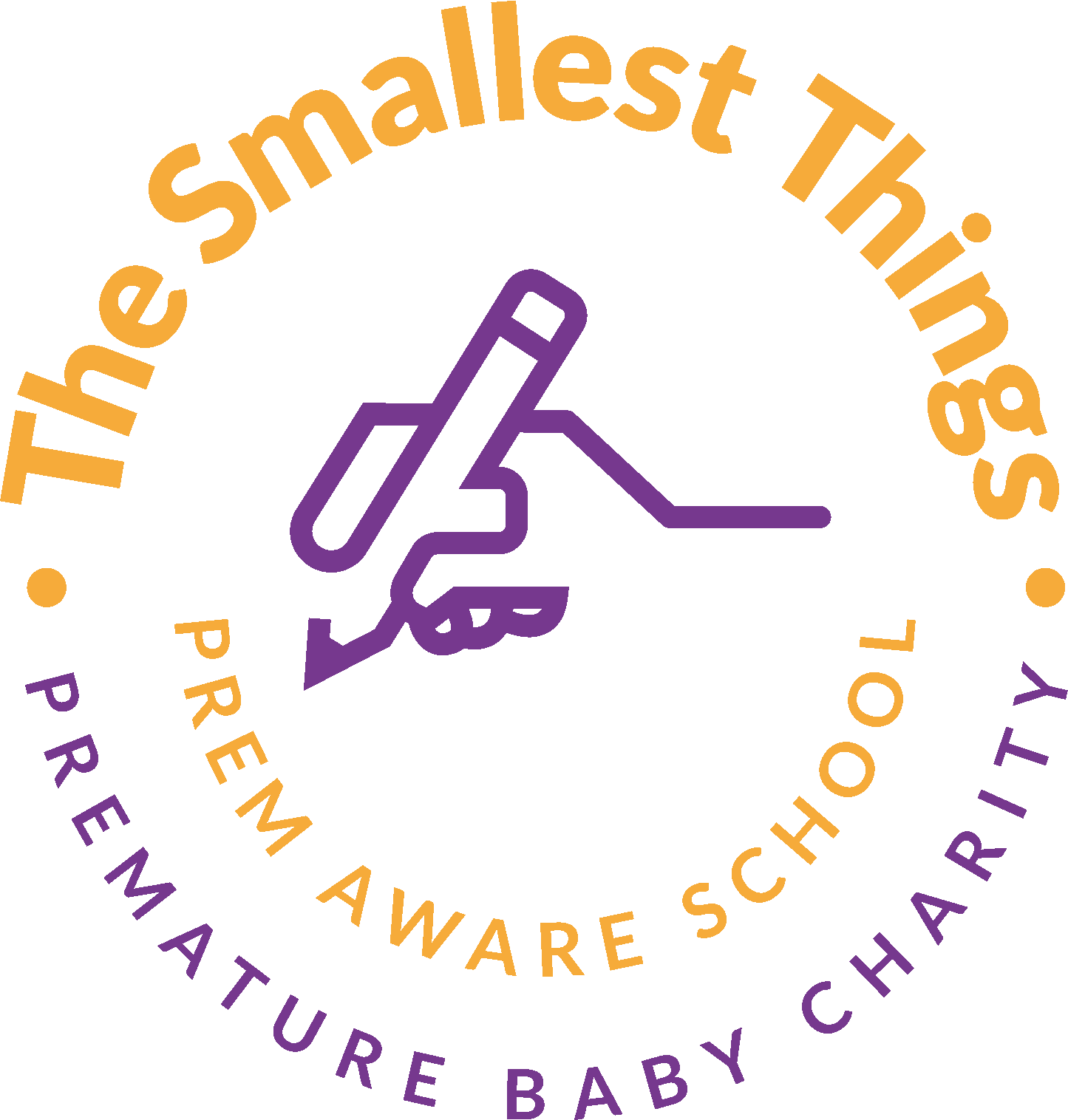Welcome to Canterbury Year 6
Canterbury is supposedly the place where St. Augustine started his missionary work to convert the Anglo Saxons to Christianity. Located in Kent, Canterbury Cathedral is one of the oldest Christian structures in England and forms part of a World Heritage Site! As with all our other class names, it has also been a significant place of pilgrimage for over a thousand years.
Our class teacher is Miss Holmes and our wonderful teaching assistant is Miss Booth.
Meet the Teacher!
Please find below the Year 6 Meet the Teacher presentation for the 2024-25 year. It outlines who is who in Year 6, an overview of our curriculum, reading expectations, communication and reporting and uniform expectations.
Y6 St Elizabeth’s Meet The Teacher Presentation September 2024
A SATs parent meeting will take place in the Year 6 classroom on Wednesday 4th March 2026. Until then, please find below an informational SATs booklet to read with the children, and a SATs spelling revision list.
We have recently moved away from X (previously Twitter) for our school and class accounts, and we are now excited to use ClassDojo as a way to connect school and home, building a positive classroom community. ClassDojo is a free app that allows teachers and parents to communicate and celebrate learning. Teachers verify all requests to join ClassDojo before approving, so please be assured that only verified parents and carers can access these Dojo pages.
We have a whole-school Class Dojo account which is used to:
- Share School-Wide Updates & Announcements – You’ll receive reminders of key events and dates, such as SEA events, masses and performances.
We also have Class Dojo accounts for individual classes which are used to:
-
Share Class-Specific Updates & Announcements – You’ll receive reminders of dates and events specfic to your child’s class, photos of their school journey and important achievements.
-
Encourage Positive Behavior – Students can earn Dojo points for showing respect, responsibility, teamwork, effort and a whole host of other positive qualities and attitudes. As parents/carers conneced to your child’s account, you can see what Dojos they have earnt across the week. Dojos across the school are then counted up by our Year 6 House Captains every Friday and the winning house (St. Bernadette’s, St. Anthony’s, St. Teresa’s or St. Dominic’s) is announced in our Friday afternoon Acheivement Celebraton of the Word.
-
Showcase Learning – Teachers can post work and images to the children’s individual portfolios so that you can see what they’re proud of. Photos of your child will be only be put onto the Class Story if prior consent from a parent or guardian has been given for this.
-
Stay Connected – Parents can message teachers directly through the app for quick communication. However, during the school day, looking after and teaching your wonderful children remains our staff’s priority. Therefore, we ask you to understand that the Class Dojo messaging feature will not be continually monitored. A response will only be given Monday–Friday and during school hours. Teachers may not respond instantly and, as such, anything urgent should be communicated to the school via usual means. We kindly ask you to respect staff’s time and keep any messages to a minimum, for us to continue to allow this feature to be used.
Class Dojo should not be used for any of the following type of communication at any time:
- Absence or illness
- Safeguarding
- Complaints of any type
- Discussing a child’s progress or attainment
We strongly encourage all families to join ClassDojo so that you can stay engaged and up-to-date with your child’s school journey. Together, we can celebrate successes and support growth every day! If you are not connected to ClassDojo, please contact your child’s class teacher for the access code.
Art
Design & Technology
Computing
Geography
Music
Homework
Following on from Year 5, we promote responsibility for learning through weekly homework. Homework is usually set every Friday, due in for the following Friday. For some topics however, we may set overarching projects, which are to be undertaken over a number of weeks. You will be given plenty of notice of the final due date in these cases.
The children will be rewarded for returning homework in on time. If the children do not return their homework, I will provide time for them to complete the work with me. They are more than welcome to ask you for support with their homework if needed, but if substantial support was needed, please make note of this on the sheet so that I am aware of this upon return. Please ensure that homework is returned to school, and taken home, in their homework journals. This ensures that our work is kept neat and tidy. We should take as much care with our homework as we would with our classwork!
Parents, if you need support in knowing how to help your child with their maths homework, please see the school calculation policy below, aswell as video tutorials on how to undertake the standard methods of addition, subtraction, multiplication and division.
St. Elizabeth’s has a Franciscan heritage, so our school values are based on Franciscan values. In Year 6, our class value is stewardship.
God cares for the world, in fact, one of the first instructions he gave to humankind was to look after the land. So, we believe it is our responsibility to care for the earth. This is called stewardship; looking after the world to pass on to the next generation. Throughout Year 6, we will try and promote stewardship in school and as part of our everyday life. Prayer and worship are also an integral part of our day.
Religious Education
St. Elizabeth’s has a Franciscan heritage, so our school values are based on Franciscan values. In Year 6, our class value is stewardship.
God cares for the world, in fact, one of the first instructions he gave to humankind was to look after the land. So, we believe it is our responsibility to care for the earth. This is called stewardship; looking after the world to pass on to the next generation. Throughout Year 6, we will try and promote stewardship in school and as part of our everyday life. Prayer and worship are also an integral part of our day.
Starting in September 2024, Year 6 (along with EYFS and Year 2) will be following the new RED (Religious Education Directory), To Know You More Clearly, launched by the Catholic Education Service. This framework will be progressively rolled out across the school, replacing the Come And See scheme by the 2025 academic year.
“While nurturing the faith of Catholic pupils, the curriculum prepares all pupils to play their part as critical citizens in a plural and diverse culture. Topics covered include the relationship between faith and science; the problem of evil; nature of human freedom; rights of the unborn; plight of refugees and asylum seekers; war and peace.” (Catholic Education Service).
The learning for each topic is summarised in the R.E. knowledge organisers, which will be added to this webpage when we start each new topic.
In English, we practise our decoding, fluency and comprehension reading skills through whole-class Talk for Reading sessions, small group reading sessions as part of a carousel, and by reading 1:1 with an adult weekly.
Due to MyBookBlog’s collapse in 2024, starting in September 2024, we now use Accelerated Reader for our home reading scheme. Similar to MyBookBlog, this means the children have a dedicated home reading book which they have chosen from our collection in school. The books the children can access are based upon their optimal Zone of Proximal Development, as assessed by their progress on Accelerated Reader. This ensures that the books they choose are accessible to their reading level, but also promote challenge! Once they have read the book, they are to complete an Accelerated Reader quiz online, based on the events they have read. To support this, the children also have a reading ‘scrapbook’, in which they can take notes and draw images in to help aid their retention of the book. The children are free to change their book as soon as they have read and ‘quizzed’ it. Please ensure that your child continues to bring in their home reading book on their allocated day so that we can assess their progress regularly. Please also ensure that the children take care of these books at home; we politely ask for a like for like replacement to be purchased for any lost or damaged books.
Children are expected to read at home for at least 10 minutes every day and the more often they read the better! This includes reading to an adult. We no longer use home-school reading diaries, and instead the children each have a vocabulary bookmark, upon which they are to write any unfamiliar words upon. We then look up the meaning of these words during our guided reading sessions in class. Please encourage your child to use these as a learning tool!
Our writing lessons follow the Pie Corbett ‘Talk 4 Writing’ style of ‘Imitate – Innovate – Invent’; put simply ‘I do – We do – You do’. More information about this method of teaching can be found in the ‘Curriculum’ section of the website, under ‘English’. Our class will typically practise two genres each half term.
Starting in 2023, we have adopted a new spelling scheme, Read Write Inc. spelling. This follows on from our KS1 phonics scheme to allow for cohesive and consistent progression and development. The scheme teaches children methods for working out how to spell any words which have regular patterns. There is also a focus on irregular spelling patterns which need to be memorised.
We will now have set spelling sessions each week, running for 15 minutes 4x per week. All units follow the same format of fun activities, together with tips explaining when each spelling pattern is likely to be used. Assessment throughout a unit is ongoing and children will be logging spellings that they find difficult in their ‘Spelling Logs’. These words will be personalised to each child, as the children choose the words they wish to ‘log’, based on which words they have found difficult throughout the week. There will be 6 words to practise each week, with a focus primarily upon the spelling rule they follow. These words are then tested in partners (in a low-stakes manner) at the start of the following unit. You can help support your child by practising the words in your child’s spelling log each night at home, and by revisiting words learnt in previous weeks.
We will also continue to provide SpellingShed as a practice hub for the children at home. We encourage the children to practice spellings daily. The spellings set each week on SpellingShed have been lined up with the spelling rules present in the RWI scheme, allowing children to continue practicing on SpellingShed. The children get chance to practice their spellings on the Spelling Shed Mastery Zone once a week. Please encourage this at home!
This year, we have made the decision to move from using PowerMaths to following the White Rose Maths scheme across the school.
Why the change?
While PowerMaths provided a strong structure, we believe White Rose offers even greater flexibility, depth and support for both teachers and pupils. It closely aligns with the National Curriculum and builds a strong foundation of number sense, reasoning, and problem-solving – key skills that children need to succeed in maths as they move on to secondary school.
How White Rose works
-
Maths is taught in small, carefully sequenced steps, ensuring children fully understand one concept before moving on.
-
Each unit, presented in the form of a booklet for each child, focuses on deepening understanding, not just getting the right answer.
-
Children are encouraged to use a variety of methods, including practical resources, drawings and formal written strategies.
-
Problem-solving and reasoning are built into every lesson so children can explain their thinking and apply their knowledge in different contexts.
What this means for Year 6 children
For our Year 6 pupils, this approach will help them feel confident and well-prepared for the transition to secondary school. The White Rose curriculum:
-
Covers all areas needed for the end-of-Key Stage 2 SATs, but with a focus on understanding rather than memorising.
-
Reinforces key number skills while also challenging children with multi-step reasoning and problem-solving questions.
-
Provides regular opportunities for children to revisit and apply knowledge from earlier year groups, filling any gaps and strengthening long-term understanding.
Supporting your child at home
White Rose also provides parent-friendly resources and short video guides, which you can find here: https://whiteroseeducation.com/parent-resources. These are a great way to see the strategies children are using in class, so you can support them in a way that matches our teaching.
Times Tables Rockstars
Maths is a vast subject and we appreciate that there’s more to it than reciting times tables. However, a lot of the rich, interesting mathematical concepts are all about the multiplicative relationships, and these are hard to fully grasp without fluent recall of the tables. For that reason, learning the tables is fundamental – they are a key facilitator to the maths that sits on top.
When it comes to times tables, speed and accuracy are important – the more facts your child remembers, the easier it is for them to do harder calculations. Following on from the Year 4 multiplication check, in Year 6, we will continue to consolidate all of our times tables, up to 12×12. Times Table Rock Stars (TTR) is a fun and challenging programme designed to help students master the times tables and help them reach the goal of being able to answer any times table (up to 12 x 12) in under 3 seconds. We encourage the children to use TTR at home and in school, and we even have a weekly TTR award, which takes place in our Friday achievement Act of Worship.
Arithmagicians
Alongside our main maths lessons, Year 6 children take part in frequest Arithmagicians practice online. This wonderfully designed, digital tool is a practice designed to build arithmetic fluency – the quick and accurate recall of number facts and methods, without the need for written working.
Children complete short, focused tasks that help them become more confident with key skills such as addition, subtraction, multiplication, division, fractions and percentages. By revisiting these regularly, pupils strengthen their number sense and develop speed and accuracy – both essential for success in Year 6 SATs and beyond. Our previous Year 6 children loved trying to beat their previous speed (and the teacher’s!) and loved being able to earn points in exchange for prizes.
Telling the Time
We encourage the children to wear an analogue watch to school to help them to tell the time. If you have an analogue clock at home, encourage your child to look at it during the day and work out the time together (starting with o’clock, half past, quarter past, quarter to, then intervals of 5 minutes past the hour).
Children are asked to bring a refillable water bottle to school each day (sports caps/straws are preferable to screw tops to avoid spillages). We encourage the children to drink water throughout the day to aid concentration. Healthy snacks of fruit or vegetables are needed for break times to keep the children going until lunchtime. Please note that we are also a nut-aware school due to allergies, so please do not send your child to school with any nut-based products for their lunches.




